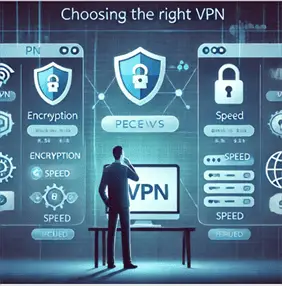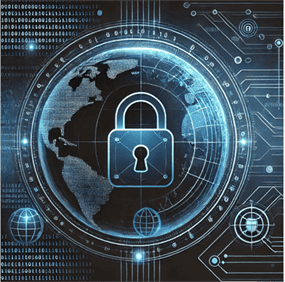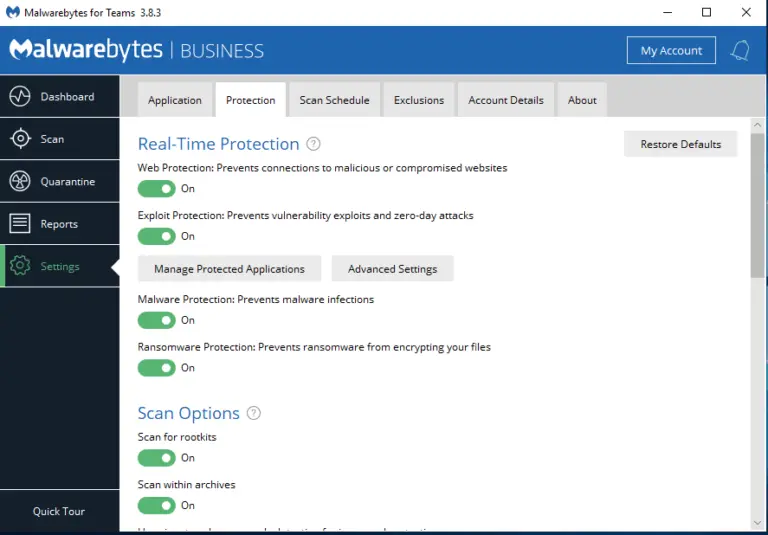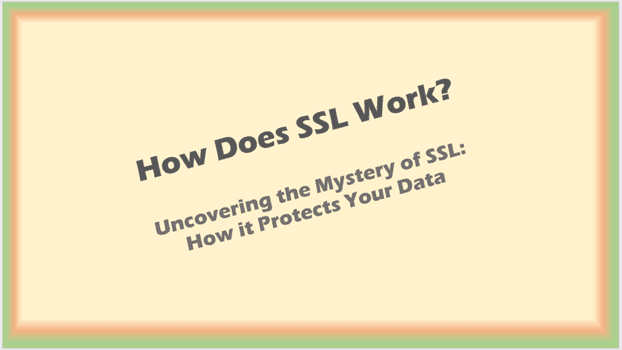Cybersecurity and Online Privacy: Essential Practices for 2024
Cybersecurity and Online Privacy are more important than ever. Explore expert tips, tools, and strategies to stay protected from cyber threats in 2024.
Introduction – Cybersecurity and Online Privacy
In today’s increasingly digital world, cybersecurity and online privacy have become paramount concerns for both individuals and businesses. As cyber threats evolve, so too must the strategies used to protect sensitive information, whether it’s personal data or proprietary business assets.
From high-profile data breaches to sophisticated phishing attacks, the risks are becoming more severe and frequent. At the same time, the line between privacy and security has become blurred, as governments, corporations, and hackers alike seek access to personal information for various purposes.
This guide will cover essential practices for enhancing your cybersecurity and safeguarding your online privacy in 2024. Whether you’re an individual trying to protect your personal data or a business owner looking to secure your digital infrastructure, these strategies are crucial for staying safe in the digital age.
For deeper insights into specific areas, explore our detailed articles like How to Protect Your Online Privacy in 2024
Section 1: Understanding Cybersecurity and Privacy
What is Cybersecurity?
At its core, cybersecurity refers to the practice of protecting systems, networks, and data from cyberattacks. It encompasses various technologies, processes, and practices designed to safeguard your digital environment. The primary goal of cybersecurity is to ensure the Confidentiality, Integrity, and Availability (CIA triad) of information, preventing unauthorized access or damage to data.
Whether it’s through firewalls, antivirus software, or advanced encryption methods, implementing cybersecurity measures is essential to protect against a wide range of threats, from malware and ransomware to phishing attacks. As the digital landscape continues to grow, both businesses and individuals must prioritize security to defend against constantly evolving cyber threats.
For further reading, check out our guide on Top Cybersecurity Threats in 2024 and How to Protect Your Business.
Online Privacy Explained
Online privacy revolves around controlling how your personal information is collected, used, and shared on the internet. In a world where data has become a valuable commodity, safeguarding your privacy is more critical than ever. From social media platforms to online shopping sites, your digital footprint is continually expanding, and so is the risk of data exploitation.
Privacy concerns range from websites tracking your browsing habits to more serious breaches like identity theft. Understanding privacy rights, limiting personal data exposure, and using tools such as VPNs can help maintain control over your information.
Learn more about practical strategies for safeguarding your personal data in our article, How to Protect Your Online Privacy in 2024.
Section 2: Common Cybersecurity Threats
Types of Cybersecurity Threats
Cybersecurity threats come in many forms, each with unique methods and objectives. Some of the most common include:
- Malware: Malicious software designed to damage or disrupt systems. Types of malware include viruses, worms, trojans, and spyware. Once activated, malware can steal data, spy on activities, or corrupt files.
- Phishing: A method where attackers impersonate a legitimate entity to deceive users into sharing sensitive information, such as passwords or credit card numbers. Phishing attempts often occur via email but can also happen through phone calls or social media.
- Ransomware: This type of attack locks users out of their own systems or files and demands payment, often in cryptocurrency, to restore access.
- DDoS Attacks: Distributed Denial of Service attacks overwhelm a system’s resources, causing it to slow down or crash, thus denying legitimate users access.
For a more detailed breakdown of these and other threats, refer to Computer Security Threats.
Emerging Threats in 2024
As technology evolves, so do the methods cybercriminals use to exploit vulnerabilities. In 2024, emerging threats include:
- AI-Powered Attacks: Cybercriminals are now leveraging artificial intelligence to carry out more sophisticated attacks, such as deepfake frauds and automated spear phishing.
- IoT Vulnerabilities: The Internet of Things (IoT) connects everyday devices to the internet, from smart refrigerators to home security systems. However, the security protocols of many IoT devices remain weak, making them prime targets for hackers.
- Supply Chain Attacks: Attackers infiltrate a company’s network by compromising their suppliers or third-party service providers, introducing risks through otherwise trusted channels.
Learn more about how to protect against these evolving threats by reading Top Cybersecurity Threats in 2024 and How to Protect Your Business.
Section 3: Best Practices for Enhancing Cybersecurity
How to Protect Your Devices from Malware and Hackers
Whether you’re an individual or a business, protecting your devices from malware and hackers is essential to maintaining a secure digital environment. Here are some of the most effective practices:
- Use Strong Passwords: Always create complex passwords combining letters, numbers, and special characters. Avoid using the same password for multiple accounts. Consider using a password manager to keep track of them securely.
- Enable Multi-Factor Authentication (MFA): MFA adds an extra layer of security by requiring more than just a password to log in. It may involve receiving a code on your mobile device or using biometric data, such as a fingerprint.
- Keep Software Updated: Regularly update your operating system and applications to protect against newly discovered vulnerabilities. Cybercriminals often exploit outdated software with known weaknesses.
- Install Antivirus and Anti-Malware Software: Reliable security software can detect and remove threats before they cause harm. Free options can offer some protection, but premium solutions often provide more comprehensive coverage.
For a detailed comparison of the best antivirus software, check out Best Free Antivirus Software for 2024.
Securing Your Online Accounts
Your online accounts, from social media to banking, contain valuable personal data. Implementing the following practices can greatly enhance security:
- Password Management: Use a password manager to generate and store secure passwords for all your accounts.
- Avoid Public Wi-Fi for Sensitive Transactions: Public Wi-Fi networks are often unsecured, making it easier for hackers to intercept your data. If you need to use public Wi-Fi, ensure you’re connected via a VPN for added security.
- Monitor for Suspicious Activity: Regularly check your accounts for any unauthorized activity, and take immediate action if you detect anything unusual.
To learn more about how to protect your online accounts, explore our guide on How to Secure Your Bank Account from Hackers.
Section 4: Understanding Privacy Laws and Compliance
GDPR, CCPA, and Other Data Protection Regulations
Data privacy regulations such as the General Data Protection Regulation (GDPR) in Europe and the California Consumer Privacy Act (CCPA) in the United States have significantly impacted how businesses handle personal data. These laws give individuals more control over their data and require companies to adhere to stricter data protection standards.
- GDPR: This regulation mandates that businesses processing data of EU citizens must obtain clear consent for data collection, provide the right to access and erase data, and ensure data is handled securely.
- CCPA: The CCPA provides California residents with the right to know what personal data is being collected and the ability to request that businesses delete it or stop selling it.
Businesses that fail to comply with these regulations face hefty fines, along with the reputational damage that comes from mishandling user data.
What Businesses Need to Know About Compliance
Adhering to data privacy laws requires more than just awareness—it involves taking concrete actions to protect data and respond to customer concerns:
- Conduct Regular Data Audits: Regularly review the data your company collects, stores, and shares. Ensure it’s being used in compliance with regulations.
- Implement Data Protection Measures: Encrypt sensitive data, restrict access to it, and ensure secure storage solutions.
- Have a Response Plan: In case of a data breach, businesses must have a clear response plan in place, which includes notifying affected users and the appropriate authorities in a timely manner.
Understanding the nuances of these regulations can seem overwhelming, but compliance is crucial for protecting your business and customers.
Section 5: Cybersecurity Tools You Should Be Using
Best VPN Services for Privacy and Security
A Virtual Private Network (VPN) is one of the most effective tools to secure your internet connection and protect your privacy. It encrypts your online activity, making it harder for hackers, governments, or even your Internet Service Provider (ISP) to track what you’re doing online. Some of the top VPN services for 2024 include:
- Surfshark: Affordable and packed with features, Surfshark offers strong encryption and access to over 3,000 servers in multiple countries. It’s ideal for both privacy and bypassing geo-restrictions.
- NordVPN: Known for its double-encryption feature, NordVPN provides an extra layer of security. It’s perfect for those who want a reliable and secure VPN connection.
- ExpressVPN: This service provides excellent speed and security, making it a top choice for those who want to stream content or access blocked websites safely.
For more details on VPNs and which one might be the best for your needs, read our Best VPN Service guide.
Antivirus and Anti-Malware Software
Choosing the right antivirus software is crucial for defending your devices against malware, ransomware, and other cyber threats. Here are some top choices:
- Malwarebytes: This is an excellent option for users looking for reliable protection against malware. The premium version offers real-time scanning and ransomware protection.
- Norton Antivirus Plus: A comprehensive solution for users who want more than just antivirus protection. Norton includes features such as a firewall, password manager, and secure cloud storage.
- Kaspersky Internet Security: Known for its solid reputation, Kaspersky offers extensive virus protection and robust privacy features, such as webcam and microphone blockers.
Find more details in our Best Free Antivirus Software for 2024 article for in-depth comparisons of free and premium options.
Best VPN Services for Privacy and Security
1. Surfshark
Surfshark offers excellent value for money while providing robust privacy features. It’s particularly well-regarded for:
- Unlimited devices: Surfshark allows unlimited simultaneous connections, making it ideal for families or businesses.
- Strong encryption: It uses AES-256 encryption, ensuring your data stays secure.
- No-logs policy: Surfshark ensures that none of your data or browsing activity is stored.
- Bypass geo-restrictions: It’s perfect for accessing region-locked content, such as streaming services like Netflix or BBC iPlayer.
Explore our full review on Surfshark VPN Review
2. NordVPN
NordVPN is known for its advanced security features and vast server network:
- Double encryption: NordVPN provides an extra layer of protection by encrypting data twice.
- No-logs policy: Ensures your browsing data is never stored.
- CyberSec feature: This feature blocks ads and malware, improving browsing safety.
- Server network: With over 5,000 servers in 59 countries, NordVPN offers fast and reliable connections globally.
For a deeper dive into NordVPN’s offerings, check out our NordVPN Free Trial article.
3. ExpressVPN
ExpressVPN is known for its speed and security, making it a favorite for those who value performance along with privacy:
- Fast servers: It has servers in over 90 countries, providing consistently fast connections, ideal for streaming or downloading large files.
- Split tunneling: This feature allows you to choose which apps use the VPN connection and which don’t, optimizing speed and security.
- TrustedServer technology: Ensures that all data on the VPN server is wiped after each reboot, further safeguarding your information.
Learn more in our Best Cheap VPN comparison.
These VPN services are highly recommended for anyone seeking enhanced privacy and security, whether for personal use or to protect sensitive business data.

How to Choose the Right VPN for Privacy and Security
With numerous VPN services available, choosing the right one can seem overwhelming. To make the best decision, consider these critical factors:
1. Security Features
The primary reason for using a VPN is to enhance your security and privacy. Look for the following essential security features:
- Encryption: Ensure the VPN uses strong encryption protocols, such as AES-256, which is the industry standard for securing data.
- Kill Switch: This feature disconnects your internet if the VPN connection drops, preventing your data from being exposed.
- No-Logs Policy: A reliable VPN will not store your browsing data, ensuring your online activities remain private.
Check out our Surfshark VPN Review for more details on security features offered by top VPNs.
2. Speed and Performance
While VPNs typically reduce internet speed due to encryption, the best services minimize this impact. If you plan on streaming, gaming, or downloading large files, speed is crucial.
- Server Locations: The closer a VPN server is to your location, the better the performance. Choose a service with a large network of servers in various countries.
- Bandwidth Limits: Make sure the VPN doesn’t have bandwidth caps, especially if you’re a heavy internet user.
For performance-focused VPNs, see our recommendations in Best VPN Service.
3. Compatibility
Ensure the VPN works across all your devices, including computers, smartphones, tablets, and routers. If you use multiple devices, check if the VPN allows simultaneous connections. Many services offer apps for:
- Windows, macOS, iOS, and Android: Native apps for different operating systems are essential for ease of use.
- Routers: Securing all devices in your network can be done by installing the VPN on your router.
Explore our detailed guide on Surfshark VPN Download for PC to ensure compatibility with your devices.
4. Privacy and Jurisdiction
The country in which a VPN is based can affect your privacy, depending on the local data retention laws. For the highest level of privacy:
- Choose a VPN outside the “14 Eyes” countries: These are countries that share surveillance data, potentially compromising your privacy.
- Independent Audits: Some VPNs undergo third-party audits to verify their no-logs policies, adding an extra layer of trust.
For insights into VPN privacy policies, read Can My ISP See What Sites I Visit with VPN?.
5. Price and Plans
VPNs come with various pricing structures, from free options to premium subscriptions. Here’s what to consider:
- Free vs. Paid VPNs: Free VPNs often come with limitations, such as data caps, fewer servers, and slower speeds. Paid VPNs offer better security, performance, and features.
- Subscription Plans: Look for flexible pricing plans, such as monthly, yearly, or multi-year options. Many VPNs offer discounts for longer-term commitments.
For a breakdown of pricing and features, visit our Best Cheap VPN comparison.
By evaluating these key factors, you can select the VPN that best fits your security needs and budget, ensuring your online privacy is fully protected.

Is a VPN Necessary for Gaming?
Using a VPN for gaming can provide several benefits, but it depends on your specific needs and priorities. Here’s a breakdown of the pros and cons of using a VPN while gaming:
Benefits of Using a VPN for Gaming
- Bypass Geo-Restrictions
- Some games are restricted to certain regions or have staggered release dates. A VPN allows you to connect to a server in a different country, giving you access to games or content that may be unavailable in your area.
- Protect Against DDoS Attacks
- Distributed Denial of Service (DDoS) attacks are a threat in online gaming, where attackers flood your network with traffic, causing it to slow down or disconnect. A VPN can help mitigate this by hiding your real IP address and making it harder for attackers to target you.
- Reduce Ping and Latency
- Although it might sound counterintuitive, connecting to a VPN server close to the game’s server can sometimes reduce latency by providing a more direct and stable route between your device and the gaming server. This can potentially improve your gaming performance, especially if your ISP is throttling your connection.
- Privacy and Security
- A VPN masks your IP address and encrypts your data, preventing anyone (including your ISP) from monitoring your online activities. This is particularly useful if you’re playing on public or shared networks.
Learn more about VPN security features in our Surfshark One Review.
Drawbacks of Using a VPN for Gaming
- Potential Speed Reduction
- Encrypting your connection through a VPN can sometimes result in slower speeds, especially if you’re connected to a distant server. This can lead to higher ping times and slower downloads, which is undesirable for fast-paced online games.
- Limited Access to Local Servers
- If you frequently play on local servers with a close-knit gaming community, using a VPN to connect to servers in different countries might reduce your ability to find local matches, potentially affecting gameplay experience.
- Cost of Premium VPNs
- While free VPNs exist, they often come with bandwidth caps, slower speeds, and fewer server locations, making them less suitable for gaming. Premium VPNs offer better performance, but they come at a cost.
For performance comparisons, see our Best VPN Service guide.
When Should You Use a VPN for Gaming?
A VPN might be necessary for gaming in the following situations:
- Accessing Geo-Restricted Content: If you want to access games or content locked to certain regions, a VPN is essential.
- Avoiding Throttling: If your ISP is known to throttle gaming traffic, using a VPN can help bypass those limitations.
- Protection Against Attacks: If you’re concerned about DDoS attacks during competitive or multiplayer games, a VPN offers an extra layer of security.
Ultimately, whether or not you need a VPN for gaming depends on your specific needs. If privacy, bypassing geo-restrictions, or avoiding throttling are your priorities, a VPN can be highly beneficial.
Is a VPN Legal Everywhere?
The legality of using a Virtual Private Network (VPN) depends on the country you’re in. While VPNs are legal in most parts of the world, some countries impose strict regulations or outright bans on their use. Here’s an overview of where VPNs are legal and where they aren’t.
Countries Where VPNs Are Legal
In most democratic countries, VPNs are completely legal to use. These include:
- United States
- United Kingdom
- Canada
- Australia
- Germany
- Japan
In these countries, VPNs are commonly used for privacy, security, and accessing geo-blocked content. Businesses and individuals often rely on VPNs for secure communication, especially when using public Wi-Fi or traveling.
For users in these regions, VPNs are perfectly safe to use, provided they are not used for illegal activities (such as hacking or distributing copyrighted content).
Check out our article on How VPNs Protect Your Online Privacy to understand more about their legal uses.
Countries Where VPNs Are Restricted or Banned
Certain countries have placed restrictions on the use of VPNs or have banned them entirely, often as a means of controlling access to information and limiting privacy. The following are notable examples:
- China: The use of non-government-approved VPNs is illegal in China. The government operates under strict internet censorship, commonly referred to as the “Great Firewall,” and heavily restricts access to foreign websites, social media, and news sources.
- Russia: Russia has banned the use of VPNs that do not comply with government regulations. Only government-approved VPNs, which must follow data retention and censorship rules, are allowed.
- United Arab Emirates (UAE): While VPN use is not entirely banned, it is restricted. Using a VPN to access illegal content or bypass government censorship (such as VoIP services like Skype) is against the law.
- Iran: Iran allows VPNs, but only those approved by the government, which severely limits their ability to bypass censorship.
- North Korea: VPNs are completely banned, along with access to the open internet, in one of the most restrictive countries in the world.
Using VPNs in these countries can lead to fines or even imprisonment, especially if they are used to access restricted content or evade government surveillance. It’s essential for travelers and expatriates in these countries to understand local regulations before using a VPN.
Best Practices for Legal VPN Use
- Research Local Laws: Before using a VPN, research the laws in your country or any country you’re traveling to. Ensure that using a VPN won’t violate local regulations.
- Use Trusted, Government-Approved VPNs in Restricted Areas: In countries where VPN use is controlled, you may need to use a government-approved VPN service. Be mindful, though, that these VPNs might log your activity.
- Avoid Using VPNs for Illegal Activities: No matter where you are, using a VPN for activities that are illegal (such as hacking, distributing copyrighted material, or conducting fraudulent transactions) is still a crime.
For a complete guide on VPNs and their safety, read Can My ISP See What Sites I Visit with VPN?.
VPNs are powerful tools for protecting online privacy and security, but it’s essential to stay informed about the laws in your region to ensure you’re using them legally.
Section 6: Future of Cybersecurity and Privacy
Trends to Watch in Cybersecurity for 2024
As we move further into the digital age, cybersecurity threats continue to evolve, and staying ahead of these changes is critical. Here are the top trends to watch for in 2024:
- Zero Trust Security Model
- The Zero Trust model operates on the principle that no user or system—whether inside or outside the network—should be trusted by default. This approach assumes that breaches are inevitable, and it focuses on continuous verification of users and devices before granting access to data or systems. Expect more companies to adopt Zero Trust Architecture to mitigate the increasing frequency of attacks.
- AI and Machine Learning in Cybersecurity
- Artificial intelligence (AI) is being integrated into both cyberattacks and defenses. On one side, cybercriminals are using AI to automate and enhance attacks such as spear-phishing and identity theft. On the other side, AI-driven security tools are being developed to identify unusual behavior, detect malware, and predict potential vulnerabilities before they are exploited.
- Quantum Computing Threats
- While quantum computing holds great promise for advancements in technology, it also presents a new cybersecurity challenge. Quantum computers have the potential to break current encryption standards, which are vital to online privacy and security. In response, researchers are working on post-quantum encryption methods to stay ahead of this emerging threat.
- Increased Focus on Ransomware Prevention
- Ransomware attacks have surged in recent years, with more businesses falling victim to costly attacks. In 2024, expect to see more emphasis on ransomware prevention strategies, including enhanced backup systems, employee training, and robust network segmentation to reduce the spread of attacks.
Balancing Privacy and Security
As cybersecurity measures become more sophisticated, there’s an ongoing debate about the trade-offs between security and privacy. While it’s crucial to protect systems and data, many of the technologies used to enhance security—such as surveillance, tracking, and data collection—raise significant privacy concerns.
- Government Surveillance and Privacy Rights
- Governments around the world are using increasingly advanced tools to monitor citizens under the guise of national security. This includes surveillance technologies, mass data collection, and facial recognition. While these methods can prevent cyberattacks and terrorism, they also threaten personal privacy.
- Data Protection vs. Convenience
- Many online platforms, from social media to e-commerce sites, collect vast amounts of personal data to offer personalized experiences. However, users must balance the convenience of tailored services with the potential loss of privacy. As data breaches become more common, consumers are increasingly demanding stronger privacy protections.
- Privacy Enhancing Technologies (PETs)
- In response to growing privacy concerns, developers are creating Privacy Enhancing Technologies (PETs), such as end-to-end encryption, anonymous browsing tools, and privacy-preserving data analysis techniques. These tools aim to enhance privacy without compromising the security or functionality of systems.
More Information:






